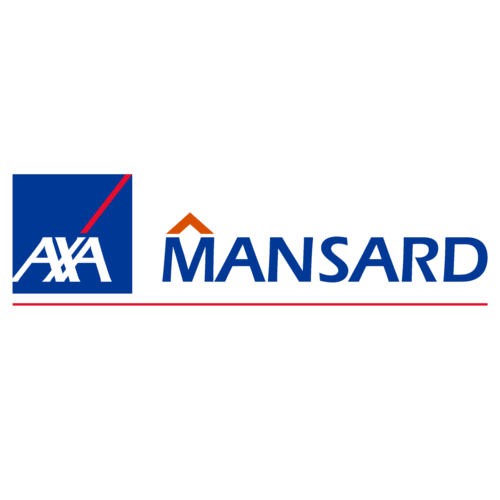Economy
NAICOM Unveils Strategic Plan for Insurance Reform

By Adedapo Adesanya
The National Insurance Commission (NAICOM) has rolled out its three-year strategic reform (2021-2023) that will see the transformation of the insurance sector.
The commission said the starting point of the reform was to return operating firms to liquidity status by ensuring that they restructure their balance sheets so that those that currently rely on assets that they can hardly turn to cash would effect a major turnaround in their operations and run their business based on cash flow instead of fixed assets.
According to the commission, it has already started this through expert advice on owners of various insurance firms in order not to repeat or face some challenges it had in the past.
For instance, it noted that firms exceeded the maximum level of investment in real estate and are now facing a cash crunch and could not easily turn their assets to cash to keep afloat in business.
It further said it is strictly guiding operators to ensure that going forward none exceeds the 25 per cent maximum investment in the real estate sector.
Making the disclosure recently, NAICOM’s Director of Supervision, Mr Thompson Barineka, who was speaking on behalf of the Commissioner for Insurance, Mr Sunday Thompson, said that most of the firms currently regarded as weak were considered so because they could not quickly turn those assets into cash and continue to discharge their responsibilities to the public.
Mr Thomas said this being the case, the agency, having accomplished the five-year strategic plans it had set for itself, is now embarking on a three-year reform.
This new reform is aimed at positioning the commission as a globally competitive regulator whose functions are compliant with global best practices and whose supervisory roles support strong insurance institutions that can stand the risks of other economic operators and meet the prevailing needs of the insuring public.
The reforms, according to Mr Thomas, rest on five strong pillars namely: entrenching effective and efficient service delivery; ensuring safe, sound and stable insurance sector; adequately protecting policyholders and public interest; improving trust and confidence in the insurance sector; encouraging innovation, and promotion of insurance market development.
According to him, the reform also gears towards ensuring absolute trust on the commission through its promotion of insurance market development tailored towards improving the scope of internal rule-base to a new risk-based supervision approach using its new integrated governance management system.
He further noted that some unexpected occurrences necessitated the need of the reforms, considering the fact that since the development of the last strategic plan which lasted between 2016 – 2020, there have been various events such as the COVID-19 pandemic, the #EndSARS protests, and the rise in kidnappings, armed banditry, communal tensions and conflicts, which have impacted on the activities and initiatives of the commission.
According to him, these events have ushered in the new normal hence shaping how the industry conducts its business going forward and the corresponding regulatory response.
He said this has also created the need to prepare the workforce for the new work order, protection of policyholders, improving human capital, leveraging on technology and creating alternative channels of insurance distribution to stimulate productivity.
He further said NAICOM would also ensure periodic review and performance monitoring of the plan within its life span bearing in mind the pandemic.
He noted that within the first year of his administration, stability has been achieved within the commission and the entire industry with staff welfare at the front burner.
He also noted that his administration has been able to issue licenses to five insurance firms in the category of three life insurance, one general insurance and one reinsurance operator.
Mr Thomas said before his tenure, the last reinsurance firm licensed in the country was 32 years ago while the last insurance firm was licensed 10 years ago.
The NAICOM boss said in line with the three-year strategic reforms, his administration saw the need to bring in new life insurance operators because, in today’s economy, one area driving the flow of funds to the industry is life business.
“Why South Africa is dominating insurance market in Africa is because of its strength in the life insurance business.
“Today in Nigeria, the contributory pension asset is in the neighbourhood of over N12 trillion, it is expected that some of these funds will find their ways to the insurance sector but at present, insurers are still scratching business on the surface,” he added
Economy
Flour Mills Supports 2026 Paris International Agricultural Show

By Modupe Gbadeyanka
For the second time, Flour Mills of Nigeria Plc is sponsoring the Paris International Agricultural Show (PIAS) as part of its strategies to fortify its ties with France.
The 2026 PIAS kicked off on February 21 and will end on March 1, with about 607,503 visitors, nearly 4,000 animals, and over 1,000 exhibitors in attendance last year, and this year’s programme has already shown signs of being bigger and better.
The theme for this year’s event is Generations Solution. It is to foster knowledge transfer from younger generations and structure processes through which knowledge can be harnessed to drive technological advancement within the global agricultural sector.
In his address on the inaugural day of the Nigerian Pavilion on February 23, the Managing Director for FMN Agro and Director of Strategic Engagement/Stakeholder Relations, Mr Sadiq Usman, said, “At FMN, our mission is Feeding and Enriching Lives Every Day.
“This is a mandate we have fulfilled through decades of economic shifts, rooted in a culture of deep resilience and constant innovation. We support this pavilion because FMN recognises that the next frontier of global Agribusiness lies in high-level technical exchange.
“We thank the France-Nigeria Business Council (FNBC), the organisers of the PIAS, and our fellow members of the Nigerian Pavilion – Dangote, BUA, Zenith, Access, and our partners at Creativo El Matador and Soilless Farm Lab— we are exceedingly pleased to work to showcase the true face of Nigerian commerce.”
Speaking on the invaluable nature of the relationship between Nigeria and France, and the FMN’s commitment to process and product innovation, Mr John G. Coumantaros, stated, “The France – Nigeria relationship is a valuable partnership built on a shared value agenda that fosters remarkable Intercontinental trade growth.
“Also, as an organisation with over six decades of transformational footprint in Nigeria and progressively across the African Continent, FMN has been unwaveringly committed to product and process innovation.
“Therefore, our continuous partnership with France for the success of the Paris International Agricultural Show further buttresses the thriving relationship between both countries.”
PIAS is one of the most widely attended agricultural shows, with thousands of people from across the world in attendance.
Economy
NEITI Backs Tinubu’s Executive Order 9 on Oil Revenue Remittances

By Adedapo Adesanya
Despite reservations from some quarters, the Nigeria Extractive Industries Transparency Initiative (NEITI) has praised President Bola Tinubu’s Executive Order 9, which mandates direct remittances of all government revenues from tax oil, profit oil, profit gas, and royalty oil under Production Sharing Contracts, profit sharing, and risk service contracts straight to the Federation Account.
Issued on February 13, 2026, the order aims to safeguard oil and gas revenues, curb wasteful spending, and eliminate leakages by requiring operators to pay all entitlements directly into the federation account.
NEITI executive secretary, Musa Sarkin Adar, called it “a bold step in ongoing fiscal reforms to improve financial transparency, strengthen accountability, and mobilise resources for citizens’ development,” noting that the directive aligns with Section 162 of Nigeria’s Constitution.
He noted that for 20 years, NEITI has pushed for all government revenues to flow into the Federation Account transparently, calling the move a win.
For instance, in its 2017 report titled Unremitted Funds, Economic Recovery and Oil Sector Reform, NEITI revealed that over $20 billion in due remittances had not reached the government, fueling fiscal woes and prompting high-level reforms.
Mr Adar described the order as a key milestone in Nigeria’s EITI implementation and urged amendments to align it with these reforms.
He affirmed NEITI’s role in the Petroleum Industry Act (PIA) and pledged close collaboration with stakeholders, anti-corruption bodies, and partners to sustain transparent management of Nigeria’s mineral resources.
Meanwhile, others like the Petroleum and Natural Gas Senior Staff Association of Nigeria (PENGASSAN) have kicked against the order, saying it poses a serious threat to the stability of the oil and gas industry, calling it a “direct attack” on the PIA.
Speaking at the union’s National Executive Council (NEC) meeting in Abuja on Tuesday, PENGASSAN President, Mr Festus Osifo, said provisions of the order, particularly the directive to remit 30 per cent of profit oil from Production Sharing Contracts (PSCs) directly to the Federation Account, could destabilise operations at the Nigerian National Petroleum Company (NNPC) Limited.
Mr Osifo firmly dispelled rumours of imminent protests by the union, despite widespread claims that the controversial executive order threatens the livelihoods of 10,000 senior staff workers at NNPC.
He noted, however, that the union had begun engagements with government officials, including the Presidential Implementation Committee, and expressed optimism that common ground would be reached.
Mr Osifo, who also serves as President of the Trade Union Congress (TUC), expressed concerns that diverting the 30 per cent profit oil allocation to the Federation Account Allocation Committee (FAAC), without clearly defining how the statutory management fee would be refunded to NNPC, could affect the salaries of hundreds of PENGASSAN members.
Economy
Dangote Cement Deepens Dominance, Export Activities With $1bn Sinoma Deal

By Aduragbemi Omiyale
To strengthen its domestic market dominance, drive its export activities, optimise existing operational assets and enhance production efficiency and capacity expansion, Dangote Cement Plc has sealed $1 billion strategic agreements with Sinoma International Engineering for cement projects across Africa.
The president of Dangote Industries Limited, the parent firm of Dangote Cement, Mr Aliko Dangote, disclosed that the deal reinforces the company’s long-term growth strategy and aligns with the broader aspirations of the Dangote Group’s Vision 2030.
According to him, Sinoma will construct 12 new projects and expand others for the cement organisation across Africa, helping to achieve 80 million tonnes per annum (MTPA) production capacity by 2030, while supporting the group’s overarching target of generating $100 billion in revenue within the same period.
Under the Strategic Framework Agreement, Sinoma will collaborate with Dangote Cement on the delivery of new plants, brownfield expansions, and modernisation initiatives aimed at strengthening operational performance across key markets.
The new projects include a new integrated line in Northern Nigeria with a satellite grinding unit, a new line in Ethiopia and other projects in Zambia/Zimbabwe, Tanzania, Sierra Leone and Cameroon. In Nigeria, Sinoma will also handle different projects in Itori, Apapa, Lekki, Port Harcourt and Onne.
The projects signal Dangote Cement’s sustained commitment to consolidating its leadership position within the African cement industry, while enhancing its competitiveness on the global stage.
Chairman of the Dangote Cement board, Mr Emmanuel Ikazoboh, during the agreement signing event in Lagos, explained that the new projects would enable the company to play a critical role in actualising Dangote Group’s Vision 2030.
The new projects, when completed, will increase Dangote Cement’s capacity and dominant position in Africa’s cement industry.
On his part, the Managing Director of Dangote Cement, Mr Arvind Pathak, said the agreement reflects the company’s determination to grow its investments across African markets to close supply gaps and support the continent’s infrastructural ambitions.
According to him, Dangote Cement is committed to making Africa fully self‑sufficient in cement production, creating more value and linkages, leading to increased economic activities and a reduction in unemployment.
-

 Feature/OPED6 years ago
Feature/OPED6 years agoDavos was Different this year
-
Travel/Tourism10 years ago
Lagos Seals Western Lodge Hotel In Ikorodu
-

 Showbiz3 years ago
Showbiz3 years agoEstranged Lover Releases Videos of Empress Njamah Bathing
-

 Banking8 years ago
Banking8 years agoSort Codes of GTBank Branches in Nigeria
-

 Economy3 years ago
Economy3 years agoSubsidy Removal: CNG at N130 Per Litre Cheaper Than Petrol—IPMAN
-

 Banking3 years ago
Banking3 years agoSort Codes of UBA Branches in Nigeria
-

 Banking3 years ago
Banking3 years agoFirst Bank Announces Planned Downtime
-

 Sports3 years ago
Sports3 years agoHighest Paid Nigerian Footballer – How Much Do Nigerian Footballers Earn

















